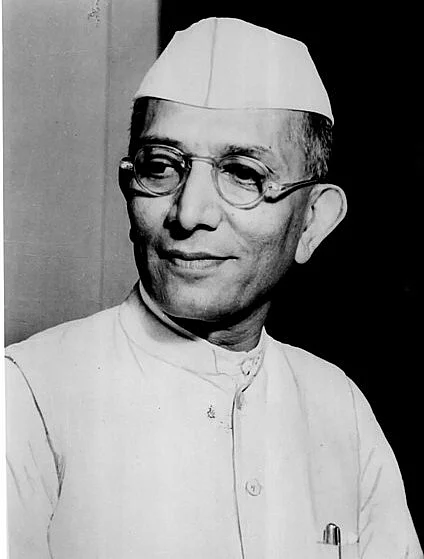Morarji Desai, India's 4th Prime Minister, died 27 years ago today
After the controversial emergency was lifted in 1977, the political parties of the opposition fought together against the Congress, under the umbrella of the Janata Party, and won the 1977 election. Desai was elected Prime Minister, and became the first non-Congress Prime Minister of India

Former Prime Minister Morarji Desai, during visit to the United States in 1978 | US Embassy in India
The 27th Death Anniversary of Morarji Ranchhodji Desai will be commemorated this year on April 10. Morarji was an Indian independence activist who served as the 4th Prime Minister of India between 1977 and 1979. In his long political career, he held many important government positions including the Chief Minister of Bombay State, Home Minister, Finance Minister and 2nd Deputy Prime Minister of India.
Morarji Desai was born on February 29, 1896, into a Gujarati family in the present-day Valsad district, Gujarat, India. He was the eldest of eight children. His father was a school teacher.
Desai attended the University of Mumbai and joined the provincial civil service of Bombay as a minor functionary in 1918. He resigned the job in 1930 and joined Mahatma Gandhi’s civil disobedience movement.
During the struggle for independence, he spent almost 10 years in British jails. On April 21, 1952, he was appointed as the second Chief Minister of Bombay State which he held till October 31, 1956.
Morarji became a member of All India Congress Committee in 1931 and served as the Secretary of the Gujarat Pradesh Congress Committee till 1937.
In 1937, Morarji became the Minister for Revenue, Agriculture, Forest and Co-operatives in the first Congress Government under Chief Minister B.G. Kher in the then Bombay Province.
In 1939, the Congress ministers left office in protest against India’s participation in the World War without the consent of the people.
Morarji served as the Member of Parliament in Lok Sabha from Surat constituency from 1957 to 1980. In 1956 he was appointed as the Minister of commerce and industry which he resigned in 1963. In March 1967 he was appointed as the Minister of Finance as well as the 2nd Deputy Prime Minister of India in the cabinet of Prime Minister Indira Gandhi.
He resigned in 1969 to become chairman of the opposition to Indira Gandhi and the Congress Party. On July 1, 1978, he was appointed as the Minister of Home Affairs which he served till January 24, 1979. Morarji was arrested in 1975 and detained in solitary confinement until 1977 for his political activities. He later became active in the Janata Party, which was a coalition of four smaller parties.
The Janata party achieved a surprising and overwhelming victory in the unexpected election in June 1977 after the Emergency from June 25, 1975, to March 21, 1977. Morarji Desai was unanimously selected as the Prime Minister by Janata party leaders. As many differences arose within the Janata party after two years of political tension, Desai announced his resignation on July 15, 1979, to avoid a vote of no confidence.
Desai was a Gandhian follower, social worker, institution builder and a great reformer. He was the Chancellor of Gujarat Vidyapith. Even during his term as the Prime Minister he used to visit and stay at Vidyapith during the month of October. He lived simply and used to write post cards himself even when he held the office of Prime Minister.
Sardar Patel deputed him to conduct meetings of farmers in Kaira district which finally led to the establishment of the Amul Cooperative movement. During his rule, he withdrew intervention in Public Distribution System and rationing shops were literally lost due to cheap sugar and oil available in the market.
On the international scene, Desai holds international fame for his peace activism and created efforts to initiate peace between two rival South Asian states, Pakistan and India.
After India's first nuclear test in 1974, Desai helped restore friendly relations with China and Pakistan, and vowed to avoid armed conflict such as Indo-Pakistani war of 1971. He was honoured with the highest civilian award of Pakistan, the Nishan-e-Pakistan on 19 May 1990.
He is the oldest person to hold the office of prime minister, at the age of 81, in the history of Indian politics. He subsequently retired from all political posts, but continued to campaign for the Janata Party in 1980. He was conferred with India's highest civilian honour, the Bharat Ratna. He died at the age of 99 in 1995.
ALSO READ
RECENT STORIES
-
-
-
-
-